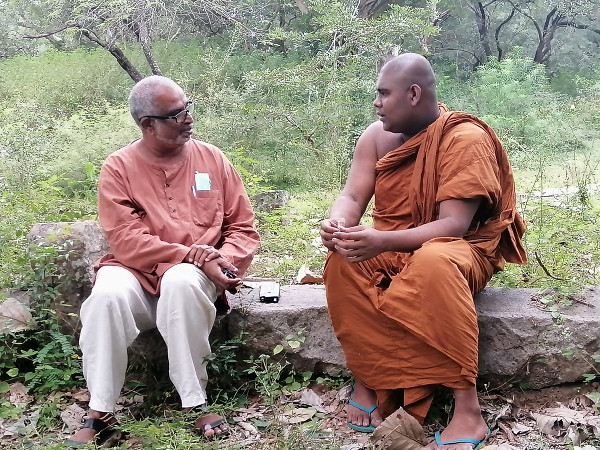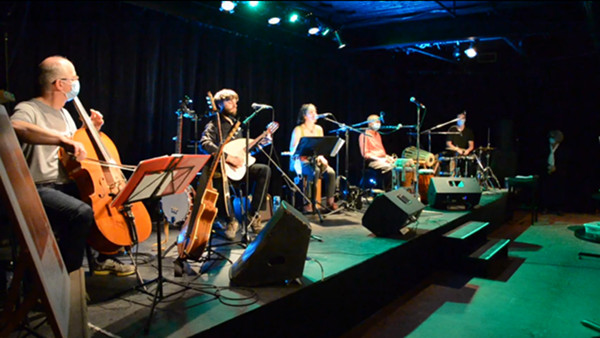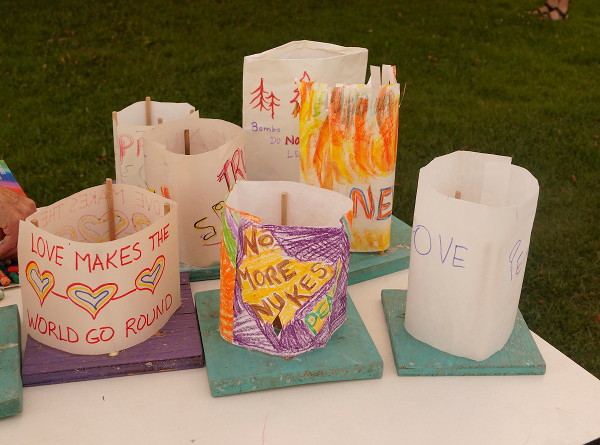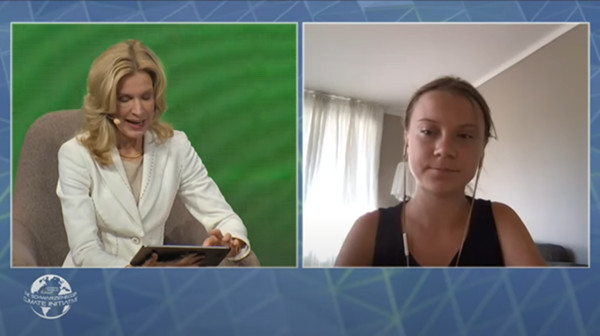|
|
|
|
|
|
Nonkilling Arts Research Committee Letter: Vol. 5, N. 5 (September-October 2021)
|
|
|
While putting together material for this Issue, we had interesting conversation on what comes first - peace or life? Why do we always forget when it comes to understand the Right to Life, we end choosing the contemplative route - that of Peace? With Right to Life, peace sounds like a mere soothing aspiration. Let’s keep in mind the distinction between the two when we are envisioning grand themes such as future of humanity etc. Many contributions for this Issue of NKARC Letter have insights related to this challenging theme.
|
Our colleague Christophe Barbey at UN Human Rights Council reacted as follows: “...life precede all other human rights: if life is taken all other rights are cancelled. Life and peace are the only rights permitting no restriction, one is either alive or not, one is either at peace or no. These rights solely stand on their core. Peace allows no restrictions either because if prevention was insufficient to maintain peace, even to restore peace it has to be done peacefully, non-violently and indeed nonkillingly.
So if life stands at the centre of all rights, peace is directly surrounding it, all the others rights in their other directions allowing this understanding to progress and thrive...”
|
|
1. Nonkilling Poetry
|
An intense and lively present!
|
May it lively be,
In all our encounters
|
|
To perfect within humanity
|
Que chaque pensée,
Chaque parole et
Chaque geste
Soient
Acte de perfection !
|
Que s’expriment en chaque instant
Un passé réussi,
Un avenir infini,
Un intense et vivant présent !
|
Que se vivent en chaque rencontre
La pensée bienveillante,
La geste de l'amour et
Toute la profondeur de la paix !
|
Ainsi s'associent
Le cœur et l’esprit,
L’œuvre et le temps,
Pour parfaire en l’humanité
Le meilleur de la vie !
Vivant Avenir !
|
— Christophe Barbey, CGNK Rep at UNHRC, Geneva, Switzerland
(Éditions Pour de Vrai, 1659 Flendruz, Switzerland, translation by the author 3.5.18/24.5.2020)
|
The future of Humanity
will depend on our humility
On our globalizing serenity
Our sustaining environment quality
Our implementing Spirituality
Our committing to equality
Ensuring the right to healthcare
|
For people in need everywhere
Advocating nonviolence and nonkilling
as the dignifying way of living
|
— Francisco Gomes de Matos, Nonkilling/Peace Linguist, Recife, Brazil
|
|
If peace flourishes between us
|
Our coexistence can be harmonious
|
|
If peace imbues each culture
|
We can learn from and with each other
|
|
If peace thrives within our institutions
|
We can find just and equitable solutions
|
|
If peace flows across our communities
|
We can enjoy rights as well as responsibilities
|
|
If peace endures between our nations
|
We can develop humane and dignified civilizations
|
|
If peace prevails in our environment
|
We can bask in wellbeing and contentment
|
|
If peace propagates in our ecological system
|
— Jocelyn Wright is English as a Second Language teacher and researcher at
Mokpo National University, South Korea
|
|
|
|
2. Nonkilling Project
Nonkilling Doc Films of Sri Lankan film-maker Vishnu Vasu
The thing about the Nonkilling Arts one learnt from Glenn D. Paige was that for authentic Nonkilling Arts, the artist must be imbued in every sense of his or her being with the spirit of Nonkilling, only then the person can create a genuine piece of nonkilling art. The 4 docs by film maker Vishnu Vasu over the past decade reflect that empathetic and compassionate spirit both in understanding of his subject and the cinematic treatment accorded. The viewer can experience that in the steady narrative and in every frame of his films. Without that nonviolent anchor it would not have been possible to accomplish such meditative realism about our Right to Life. His creative body of work triggers not only empathy but also coaxes a viewer into seeing our tacit complicity. The films compel us to think about the ways to bring about the change needed. The four docs and their url for free watching are as follows:
|
Additionally, his short videos are insightful comments on contemporary issues, e.g. his 2 min. video 'Hope for Humanity' about the pandemic.
|
|

|
|
|
3. Nonkilling Music and Song
|
(1) NKARC colleague Olivier Urbain sent this timely MOMRI video clip on Music in Common. The Music and Peacebuilding theme remains a key aspect of NKARC.
|
Min ON and Peacebuilding: Music in Common
Recently MOMRI released its SMD#5, which includes a 15 min sequence regarding ‘Music In Common’, in particular their work with young people struggling with the Israel/Palestine issue. After about one minute of a introduction in Japanese by the announcer Ms. Sato, the English language video starts at 1’20” for next 15 minutes.
[After 15 min, rest of the video in Japanese is about a ceremony that happened recently, where MOMRI institute and Min-On received the prestigious award for Ethnomusicology in Japan, called the Koizumi Prize. There is a strong nonkilling message in there too (in Japanese!]. Thank you, Olivier.
|
|
(2) On behalf of Quebec based multicultural-multilingual music group Mosaïque, NKARC colleague Jayanta Guha sent the following offering:
|
Après un hiatus de 18 mois, Mosaïque est heureux d’être sur scène ensemble. Nous partageons cette joie avec vous:
After a hiatus of 18 months, Mosaïque is happy to be on stage together. We share this joy with you:
|
|

|
|
|
4. Nonkilling Research
Breathing the Others, Seeing the Lives: A Reflection on Twenty-First-Century Nonviolence by Chaiwat Satha-Anand
The article underscores the question why, when seeing the sights of human suffering, we do not grieve. Why can’t we? In meditating on why it is so very difficult to answer the question, Chaiwat’s article attempts to advance a philosophical assertion that “the difficulty arises from a profound sense of human failure to realize how one’s life is connected to the lives of others, and that to be able to do so, it is necessary to call into question the dominant role of ‘thinking’ as the defining quality of being human.” The question is significant as grief for the nameless, voiceless and shapeless - the other has value and consequence.
|
“Time, Torture, Trauma -- the scars of psychological torture” by Archana Kaku
A sharp insight into the enactment of oppression through torture, the article by Archana (from magazine Shuddhashari) inhabits a unique field of research in the politics of body, violence and power. With current US anti-slavery and decolonization conversations in media, images from docu-dramas like Roots, interrogation of Guantanamo Bay prisoners and Al Qaida/ISIS terrorists, the article reminds us of those who happen to fall outside the norms of Geneva conventions and national jurisdictions, awaiting freedom and justice.
|
A Letter to Glenn D.Paige on his 92nd Birthday from Bangkok, Thailand by Chaiwat Satha-Anand
Reminded by this Korean TV series Heaven's Garden, in this wistful note about his friend Glenn D. Paige, Chaiwat remembers about Paige's long association with Korea, as a Korean war soldier. Chaiwat writes: "Heaven’s Garden shows how extremely difficult it has been for anyone to delicately negotiate one’s life with those h/she loves to live in a family of three generations touched by the curse of war and deeply polarized violence that has torn societies asunder, be it Korea, Vietnam, Iraq, Afghanistan, or the partition of Ind..."
|
|
|
|
5. Nonkilling Commemoration
NKARC colleague Koozma Tarasoff writes: “Congratulations to all the organizers and participants in the Hiroshima Day Commemoration held in Ottawa on August 6th! You have all helped to become aware of the inhumanity of mass murder as done with the atomic bombing of Hiroshima and Nagasaki by the USA in August 6th and 9th, 1945. Let's do our part to ensure that such mass murder does not take place again, as we are reminded by the Charter of the United Nations on 26 June 1945:
|
We the peoples of the UN determined to save succeeding generations from the scourge of war, which twice in our lifetime has brought untold sorrow to mankind, and
to reaffirm faith in fundamental human rights, in the dignity and worth of the human person, in the equal rights of men and women and of nations large and small, and
to establish conditions under which justice and respect for the obligations arising from treaties and other sources of international law can be maintained, and
to promote social progress and better standards of life in larger freedom....
to unite our strength to maintain international peace and security....
|
In search of truth and a nonkilling society,
Koozma J. Tarasoff"
|
|

|
|
|
|
For a background piece on Hiroshima and Nagasaki - “Speaking of the Unspeakable” by Sean Howard provides insight into the life and mind of Hiroshima survivors.
|
|
6. CGNK Updates by Joam Evans Pim
(iii) Video Recording of Global Colloquium on Creating an Affirmative Nonkilling World: A webinar. Hosted by Anoop Swarup and Katyayani Singh on the occasion of CGNK founder Glenn D. Paige’s 92 birthday commemorative event, it makes a live record of timely presentations made by keynote speakers, scholars and activists, from across the globe.
|
(iv) Online Nonkilling Course: a series of not to be missed lectures available online for a structured, self-paced open course. The three first lectures are already online:
|
|
|
|
7. Nonkilling Reflections
|

|
- On Breathing by Mony Dojeiji
“We can live without food or water for short periods of time (fasting). Some claim to live for years purely from the energy found in sunlight and all living things (the ancient practice of breatharianism or inedia). But we cannot live without the breath.”
|
|
|
8. Nonkilling Journalism
|
|
|
|
CALL FOR SUBMISSIONS TO THE IFLAC ANTHOLOGY 202I : Human Trafficking and Modern Slavery, Submissions – Last Date: 15 September 2021.
|
Prof. Ada Ahroni, founding President IFLAC - INTERNATIONAL FORUM FOR THE CULTURE OF PEACE informs: The subject of 2021 Iflac Peace Anthology will be: “Human Trafficking and Modern Slavery,”, it will contain Articles, Real Life Stories, Interviews, Poems, A Contest of Haiku, Books and Film Reviews, Drawings and Paintings. It will be published on Amazon. We hope that this Anthology will pave the way to banish the horrible practice of Human Trafficking and Modern Slavery, and bring instead: The honoring of human life, Freedom, Bridges of Peace Culture, Understanding, Harmony and Peace. Please send one of your best: (Up to 5 pages) Articles, one of your best (Up to 5 pages) Stories, 3 (up to 30 lines) poems and 5 Haikus, on the subject, in English to: Vijay Kumar Roy vijaykumarroy.english@gmail.com or Prof. Aharoni da.aharoni06@gmail.com.
|
|
|
|
Last Word
May there be NONKILLING PEACE in Afghanistan
May Nonkilling prevail in calm waters may refugees sail
May Nonviolence inspire a way of living we’ll admire
May there be peace and mutual respect never cease
World history let’s write and implement the utmost Right-
the Right to Nonkilling, Global Peace, and Human Dignity.
|
— Francisco Gomes de Matos, Peace Linguist, Recife, Brazil
|
|
|
|
My deep gratitude to all who contributed and pointed to the material for the Letter.
I look forward as always to your inspirations, suggestions and comments.
|
|
"Nonkilling Culture crosses all the lines." —Glenn D. Paige
|
Nonkilling is THE measure of Human progress
|
[THIS IS AN INTERNAL NEWSLETTER OF THE NKARC. COPYRIGHT FOR ALL MATERIAL IN THE NEWSLETTER REMAINS PROPERTY OF THE SOURCES/WRITERS/ART CREATORS]
|
|
|
|
Stay in contact also on Social Networks
- Please feel free to contact NKARC Letter's coordinator at billbhaneja@nonkilling.org.
- You can also follow the Center for Global Nonkilling at these social networks:
|
 
|
|
|
|
|
|